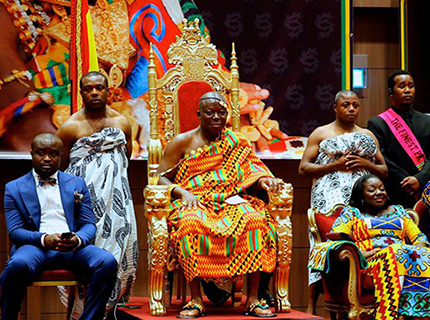The Asantehene, Otumfuo Osei Tutu II, says the government’s flagship programme, the Free Senior High School initiative, is taking a huge toll on the national budget despite the country’s meagre resources.
The Asantehene did not only bemoan the financial impact of the policy, but also expressed concern about its possible impact on unemployment levels in the country.
“Considering the value to the nation, this must be one of the boldest policies of the nation but it also brings its challenges”, Otumfuo stressed.
The Akufo-Addo government has been under pressure to review its flagship Free SHS policy, as it takes a chunk of the country’s resources, and poses a threat to quality, although access has drastically improved.
But the government appears adamant.
The Asantehene, while speaking at a Memphis in May event at the University of Memphis in the United States, raised fundamental questions about the policy, particularly its impact on jobs as more SHS graduates are being churned out from the various second-cycle institutions.
“The current government has introduced free education up to Senior High School, which now ensures that all Ghanaian children from whatever background are guaranteed free education.”
“It [Free SHS] puts a huge strain on the national budget and raises further the challenge about the creation of jobs for the increasing number of graduates”, he added.
There have been suggestions that the Free SHS programme should be reviewed to target persons with genuine need and not made to benefit everyone.
The proposal is that some Senior High Schools should be allowed to demand fees whereas others are made free to create a fair playing field for students from all walks of life.
“I believe strongly that we need to target people, and the most appropriate way is by means-testing. Instead of making SHSs free, why don’t we make some free and others payable”, says former Vice-Chancellor of the University of Ghana, Prof. Ernest Aryeetey.
The academic is concerned about the state of Ghana’s Senior High School education emphasizing that secondary education in Ghana is becoming “less and less competitive.”
He feared that this could threaten social cohesion in the future and undermine national development.







